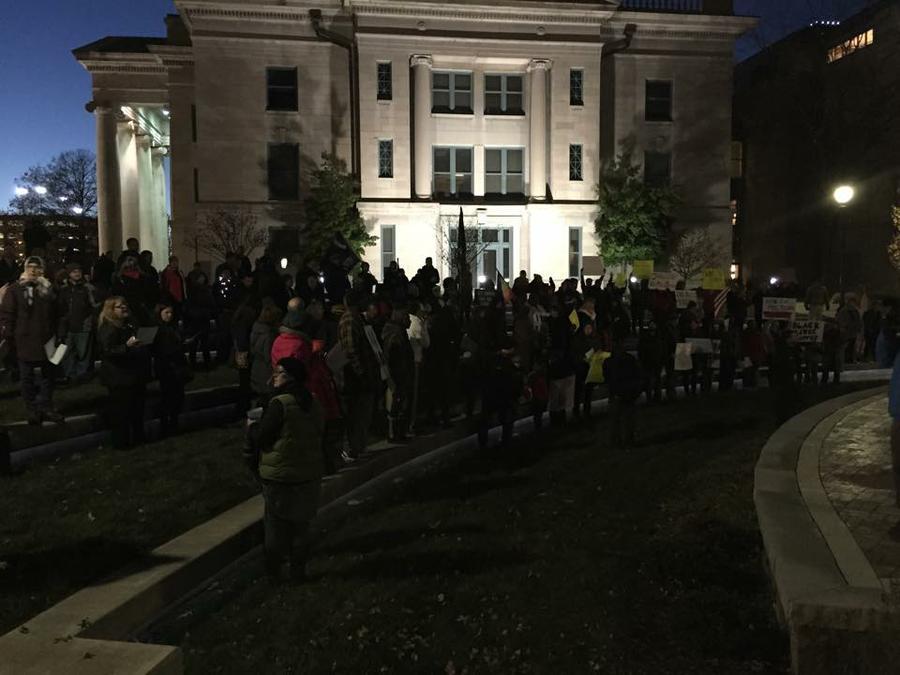
About two hours away from Ferguson, a march took place Tuesday night.
The march, organized by the Columbia chapter of the National Association for the Advancement of Colored People, joined demonstrations around the nation to protest a grand jury’s Monday decision to not indict Darren Wilson, the white police officer who killed Michael Brown, an 18-year-old black man, in Ferguson, Missouri in August.
Other groups involved included Columbia Faith Voices, African-American Clergy Coalition of Mid-Missouri and Mid-Missouri Fellowship of Reconciliation.
The group left the Second Baptist Church on East Broadway at about 5 p.m. and walked to the Boone County Courthouse amphitheater, where speeches and demonstrations took place. The vigil at the amphitheater both opened and closed with prayer.
“We grieve,” one of the members said in a speech. “We grieve for justice. We do not grieve as those who have no hope, we have hope.”
The issue goes far beyond Ferguson and even Missouri, Columbia resident Taylor Murrie-Robinson said.
“I think what was going on in Ferguson was a travesty for the whole family but it really just brought up the whole issue of white privilege and the racism that still exists today,” Murrie-Robinson said. “I think it’s something that often goes unseen. There’s a lot of silence about the issue of racism and it’s something that we’ve been hiding behind for a really long time and it’s time to stand and fight together.”
Peaceful protests are encouraged, said Reverend Dr. Clanton C.W. Dawson Jr., president of the African-American Clergy Coalition of Mid-Missouri.
“Do I believe we ought to burn down buildings, shoot police officers and on and on? No, because I’m really trying to practice my faith,” Dawson said. “I really do believe violence begets violence.”
Dawson’s wife Mara also attended the demonstration and said people need to change their attitudes toward the situation.
“When you’re not willing to let go, you just act out,” Mara Dawson said. “You have to learn to forgive so that the right things will go into play, not just for yourself but for everybody else.”
There are actions to take to prevent another situation like this one, Clanton Dawson said.
“We need to overcome those divisions,” he said. “We need to have an honest talk about race, about sexism, about homophobia. The last thing we do, we have to forgive each other. There is no healing where there is no forgiveness.”
Murrie-Robinson said police having body cameras would help these types of issues.
“Hopefully that’s something that comes to place so there will be no ‘he said, she said,’” Murrie-Robinson said.
Dawson said Martin Luther King, Jr. was correct in one of his books where he laid out the options for the future of America and race issues.
“Either we will have continual chaos and we will be torn asunder or we will find a way to build community among us,” Dawson said. “I believe we have more in common than we have dissimilar. That is the challenge of the human race. We all know how we are individual and unique, but nobody talks about how we are the same. And we need to start that discussion again or we are in trouble.”
The Missouri chapter of the NAACP is planning a march from Ferguson to the Governor’s Mansion in Jefferson City, which will start Saturday and end Dec. 5.